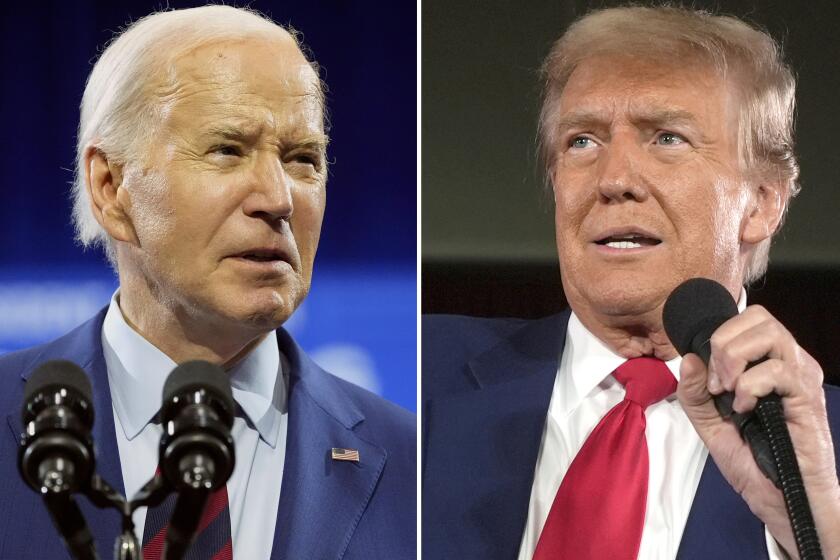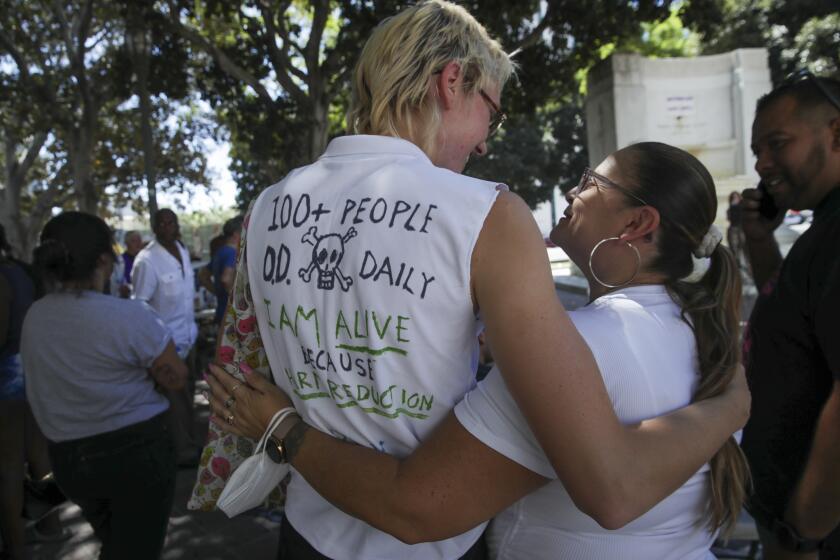China Softens Tone Against Taiwan’s Ruling Party
A top Chinese official Thursday tempered Beijing’s hostility toward the ruling party in Taiwan, blaming only a small minority for pushing Taiwanese independence and extending a tentative welcome to the majority, a shift that could ease tensions in one of the world’s hot spots.
“We believe there is a difference between the majority of Democratic Progressive Party members and the extremely small number of die-hard ‘Taiwan independence’ elements,” state media quoted Vice Premier Qian Qichen as saying.
“We welcome them, under an appropriate status, to come and look around and to pay visits to further understanding,” he said.
The remarks by Qian, China’s top diplomat, were Beijing’s most conciliatory yet toward the party of Taiwanese President Chen Shui-bian, which China has denounced as a separatist movement.
The move could lead to greater dialogue and cooperation across the narrow Taiwan Strait, although Qian reiterated China’s insistence that the island must recognize that it belongs to China before any formal political negotiations between the archrivals can be revived. Chen’s government has steadfastly refused to accept any preconditions to talks.
Since Chen’s election shocked the world two years ago, upending the long-ruling Nationalists, Beijing has been implacable in its opposition to the DPP. The party has historically advocated the idea of independence from the mainland, which considers Taiwan a renegade province.
Throughout Chen’s presidency, Chinese officials have sought to isolate him on the world stage and to court his opponents, inviting several Nationalist Party members to Beijing for friendly chats.
But last month, the ruling party further strengthened its position on the island while the Nationalists’ fortunes continued to plummet. In island-wide elections, the Nationalists lost their long-held majority in the legislature and glumly watched the DPP become the party with the most seats.
The new political landscape may have prompted Beijing to moderate its position toward the party.
But analysts warned against too much sudden optimism. Beijing would almost certainly exclude Chen from any list of party members it would invite to the mainland, as well as his deputy, Vice President Annette Lu, an ardent independence supporter whom Chinese media once called “scum.”
In fact, Thursday’s change of tone may be part of the mainland’s strategy of shunning Chen and pushing him further into a corner by himself. Just last October, Chinese Foreign Minister Tang Jiaxuan publicly called Chen a liar.
Many in the Beijing regime regard Chen as a closet independence advocate, a notion seemingly reinforced this month by the Chen administration’s decision to change Taiwanese passports to say, “Issued in Taiwan.” (The idea was ultimately scrapped.)
For his part, Chen is no likelier to abruptly reverse course and embrace the “one China” principle. “I don’t think Chen’s going to give Beijing the brass ring they’re seeking,” said Jonathan Pollack, a China expert at the Naval War College in Newport, R.I.
But both sides appear eager to increase economic ties, despite some fear in Taipei that the island may become too dependent on the mainland and have no choice but to reunify with it eventually.
Taiwan and China are new members of the World Trade Organization, which will increase the scope of economic activity across the Taiwan Strait. Qian said that “political differences should not interfere with trade exchange, and man-made obstacles which limit economic cooperation should be removed as soon as possible,” the New China News Agency reported.
Qian’s comments came at a gathering marking the seventh anniversary of a plan put forth by President Jiang Zemin to reunify China and Taiwan. The island has been governed separately since civil war on the mainland between the Communists and Nationalists ended in 1949.
More to Read
Start your day right
Sign up for Essential California for news, features and recommendations from the L.A. Times and beyond in your inbox six days a week.
You may occasionally receive promotional content from the Los Angeles Times.







